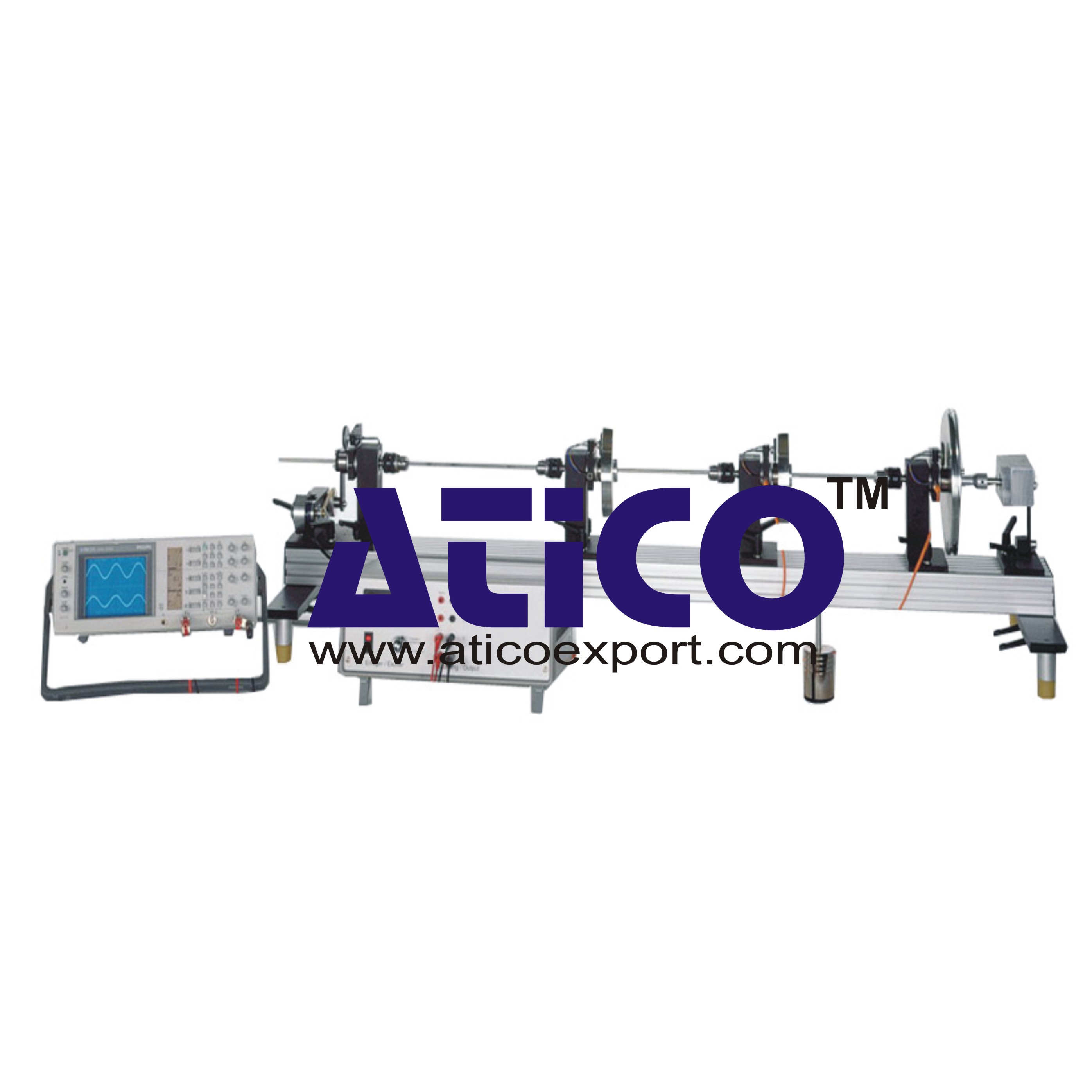Torsional Vibrations Apparatus
Categories:Torsional Vibrations Apparatus Technical Description: This experimental unit is used to explain torsion and torsional vibration in experiments. Demonstrations and student experiments are both foresee...
Product
Description
Torsional Vibrations Apparatus
Technical Description:
This experimental unit is used to explain torsion and torsional vibration in experiments. Demonstrations and student experiments are both foreseen in equal measures. The core of the experiment is a metal torsion bar. With the aid of chucks, mass discs of varying inertia can be attached to the bar. It this way it is possible to assemble torsional vibrator systems with up to three masses. Vibrations can be induced on the system using an electrical exciter supplied from the control unit. An adjustable damper can be used to influence the vibrations. Shaft encoders on the chucks provide the amplitude of vibration as an electrical signal.
Specification:
1. Experimental unit for investigating torsional vibration and torsional stiffness in demonstrations and student experiments 2. Frame made of aluminium with rubber feet 3. Steel torsion bar, corrosion-resistant 4. 3 mass discs 5. 4 ball bearing mounted bearing units with chucks and 3 hole flange, the bearing units can be positioned as required 6. Sealed oil damper 7. Exciter with drive crank, excitation amplitudes 1.4°, 1.8°, 2.4° 8. 4 angle of rotation sensors, 0.03V/° 9. Electrical exciter control unit with digital frequency display, 10-turn potentiometer and supply for the shaft encodersTechnical Data:
Torsion test bar
- 1300mm
- D=6mm - corrosion-resistant steel - Stiffness: approx. 1,0Nm/rad/m
Weights
- D=150mm, approx. 2,7kg - D=228mm, approx. 4,8kg - Exciter frequency: 1...20Hz - Damping coefficient: 0,25...3,5 Nm/rad/s
quick overview :
Torsional Vibrations Apparatus
Technical Description:
This experimental unit is used to explain torsion and torsional vibration in experiments. Demonstrations and student experiments are both foreseen in equal measures. The core of the experiment is a metal torsion bar. With the aid of chucks, mass discs of varying inertia can be attached to the bar. It this way it is possible to assemble torsional vibrator systems with up to three masses. Vibrations can be induced on the system using an electrical exciter supplied from the control unit. An adjustable damper can be used to influence the vibrations. Shaft encoders on the chucks provide the amplitude of vibration as an electrical signal.
Specification:
1. Experimental unit for investigating torsional vibration and torsional stiffness in demonstrations and student experiments 2. Frame made of aluminium with rubber feet 3. Steel torsion bar, corrosion-resistant 4. 3 mass discs 5. 4 ball bearing mounted bearing units with chucks and 3 hole flange, the bearing units can be positioned as required 6. Sealed oil damper 7. Exciter with drive crank, excitation amplitudes 1.4°, 1.8°, 2.4° 8. 4 angle of rotation sensors, 0.03V/° 9. Electrical exciter control unit with digital frequency display, 10-turn potentiometer and supply for the shaft encodersTechnical Data:
Torsion test bar
- 1300mm
- D=6mm - corrosion-resistant steel - Stiffness: approx. 1,0Nm/rad/m
Weights
- D=150mm, approx. 2,7kg - D=228mm, approx. 4,8kg - Exciter frequency: 1...20Hz - Damping coefficient: 0,25...3,5 Nm/rad/s
Product
Reviews
add Review
reviews
No Review Yet.








Product
Reviews
add Review
reviews
No Review Yet.